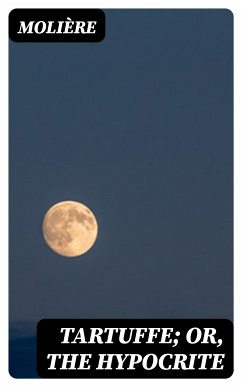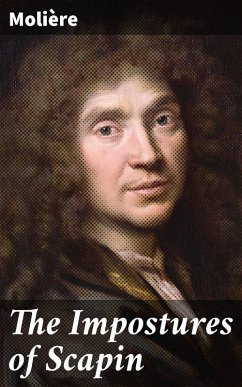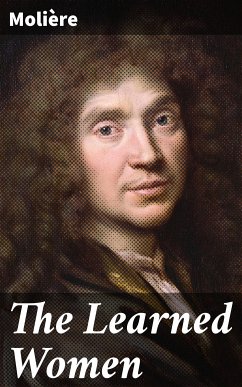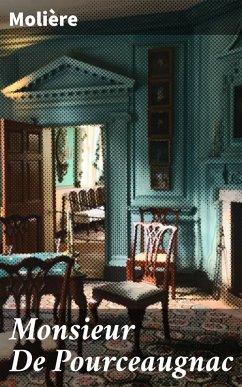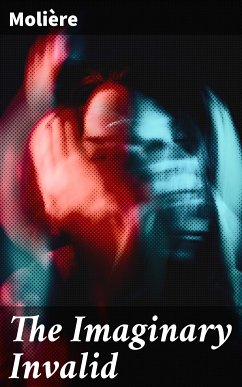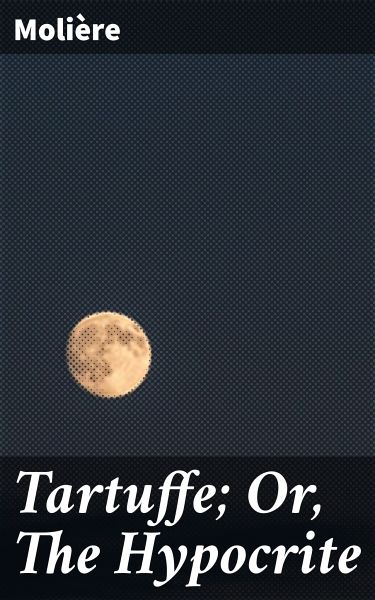
Tartuffe; Or, The Hypocrite (eBook, ePUB)
Enriched edition. A Scathing Satirical Masterpiece of Deception and Morality in French Theatre
Kommentar: Everly, Desmond / Redaktion: Good Press / Übersetzer: Page, Curtis Hidden

PAYBACK Punkte
0 °P sammeln!
Molière's "Tartuffe; Or, The Hypocrite" stands as a seminal work in French literature and classic comedy, deftly intertwining humor with a profound critique of religious hypocrisy. Set in 17th-century France, the play follows the duplicitous Tartuffe, who manipulates his way into the lives of the gullible Orgon and his family, exposing the dangers of blind piety and the absurdity of moral pretensions. Molière's exceptional use of wit, sharp dialogue, and rhythmic verse elevates the narrative, engaging audiences while eliciting critical reflection on sincerity and deceit. Molière, born Jean-...
Molière's "Tartuffe; Or, The Hypocrite" stands as a seminal work in French literature and classic comedy, deftly intertwining humor with a profound critique of religious hypocrisy. Set in 17th-century France, the play follows the duplicitous Tartuffe, who manipulates his way into the lives of the gullible Orgon and his family, exposing the dangers of blind piety and the absurdity of moral pretensions. Molière's exceptional use of wit, sharp dialogue, and rhythmic verse elevates the narrative, engaging audiences while eliciting critical reflection on sincerity and deceit. Molière, born Jean-Baptiste Poquelin, emerged from a well-to-do Parisian family and was deeply influenced by the cultural upheavals of the French Renaissance. His experiences as an actor and playwright within the vibrant theatrical scene led him to confront social injustices, religious hypocrisy, and human follies in his works. "Tartuffe," first performed in 1664, stirred controversy for its incisive critique of the religious elite and reflects Molière's enduring commitment to satirizing the dissonance between appearance and reality. Readers are encouraged to embrace "Tartuffe" not merely as an entertaining farce but as a timeless exploration of the moral complexities inherent in human behavior. Molière's astute observations compel readers to interrogate their own beliefs and the facades of those around them, making this work essential for anyone interested in the interplay of drama, ethics, and society. In this enriched edition, we have carefully created added value for your reading experience: - A succinct Introduction situates the work's timeless appeal and themes. - The Synopsis outlines the central plot, highlighting key developments without spoiling critical twists. - A detailed Historical Context immerses you in the era's events and influences that shaped the writing. - An Author Biography reveals milestones in the author's life, illuminating the personal insights behind the text. - A thorough Analysis dissects symbols, motifs, and character arcs to unearth underlying meanings. - Reflection questions prompt you to engage personally with the work's messages, connecting them to modern life. - Hand-picked Memorable Quotes shine a spotlight on moments of literary brilliance. - Interactive footnotes clarify unusual references, historical allusions, and archaic phrases for an effortless, more informed read.
Dieser Download kann aus rechtlichen Gründen nur mit Rechnungsadresse in A, B, BG, CY, CZ, D, DK, EW, FIN, F, GR, H, IRL, I, LT, L, LR, M, NL, PL, P, R, S, SLO, SK ausgeliefert werden.




